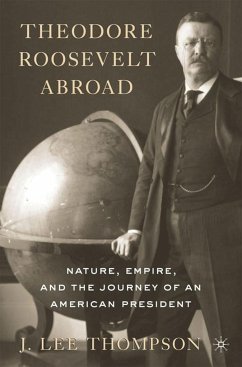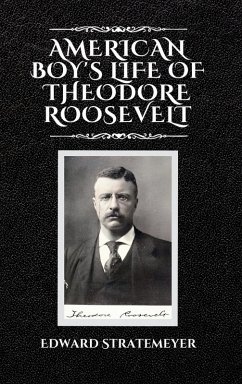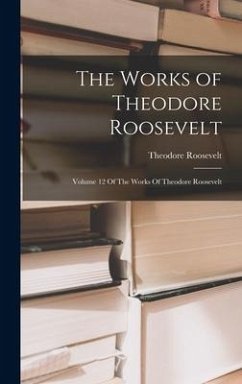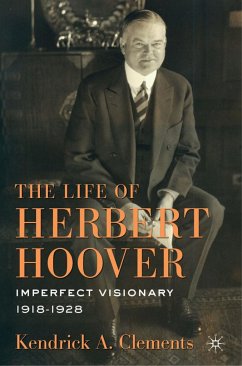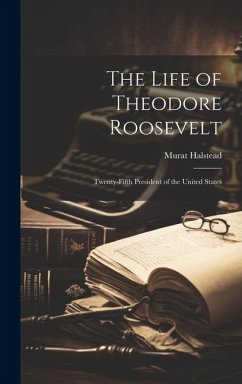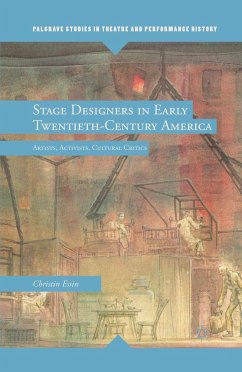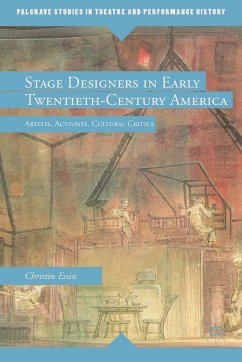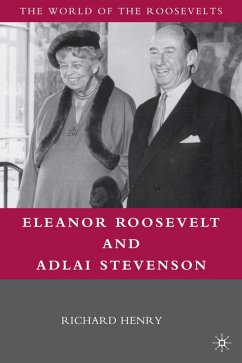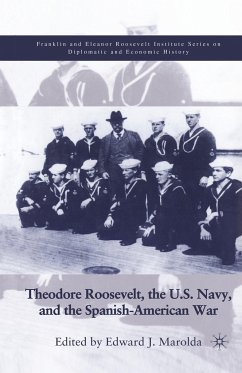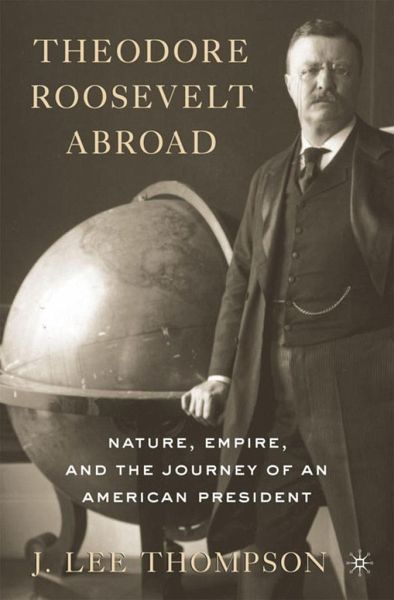
Theodore Roosevelt Abroad
Nature, Empire, and the Journey of an American President

PAYBACK Punkte
14 °P sammeln!
The first full account of Theodore Roosevelt's daring and adventurous post-presidential odyssey to Africa and Europe In a life full of momentous episodes, Theodore Roosevelt's fifteen-month post-presidential odyssey to Africa and Europe has never been given its due place. The great adventure across the Dark Continent fulfilled a long-held dream for the hunter-naturalist aspect of his multi-faceted character. However, besides big game rifles, Roosevelt also brought along his bully pulpit and accompanying ideals. While he shot elephant and rhino in their East African possessions, he could not re...
The first full account of Theodore Roosevelt's daring and adventurous post-presidential odyssey to Africa and Europe In a life full of momentous episodes, Theodore Roosevelt's fifteen-month post-presidential odyssey to Africa and Europe has never been given its due place. The great adventure across the Dark Continent fulfilled a long-held dream for the hunter-naturalist aspect of his multi-faceted character. However, besides big game rifles, Roosevelt also brought along his bully pulpit and accompanying ideals. While he shot elephant and rhino in their East African possessions, he could not refrain from also lecturing Britain's flabby Liberal government on the exertions required to keep up their share of the burden of empire, returning the sentiment his friend Rudyard Kipling had urged on the United States during the Spanish-American War.
Roosevelt went abroad in part so that his friend and chosen successor, William Howard Taft, could plow his own furrow without the appearance of interference. However, while Roosevelt realized one dream of nature on safari, he came to believe another, even more vital to his heart and legacy, was being undermined at home. Everyone assumed, and Taft declared, that he would continue Roosevelt's policies - conservation first. In this they all, Roosevelt included, were wrong. Leaving Taft alone in the political jungles of Washington proved a huge error with devastating results, most importantly an acrimonious split between the two old friends that led directly to the election of Woodrow Wilson.
A tale of daring adventure, international celebrity, a friendship lost, and a political legacy transformed, Theodore Roosevelt Abroad is the first full account of this important time in history.
Roosevelt went abroad in part so that his friend and chosen successor, William Howard Taft, could plow his own furrow without the appearance of interference. However, while Roosevelt realized one dream of nature on safari, he came to believe another, even more vital to his heart and legacy, was being undermined at home. Everyone assumed, and Taft declared, that he would continue Roosevelt's policies - conservation first. In this they all, Roosevelt included, were wrong. Leaving Taft alone in the political jungles of Washington proved a huge error with devastating results, most importantly an acrimonious split between the two old friends that led directly to the election of Woodrow Wilson.
A tale of daring adventure, international celebrity, a friendship lost, and a political legacy transformed, Theodore Roosevelt Abroad is the first full account of this important time in history.





